Fireworks: Can we prevent violence around Halloween and Bonfire Night?
- Published
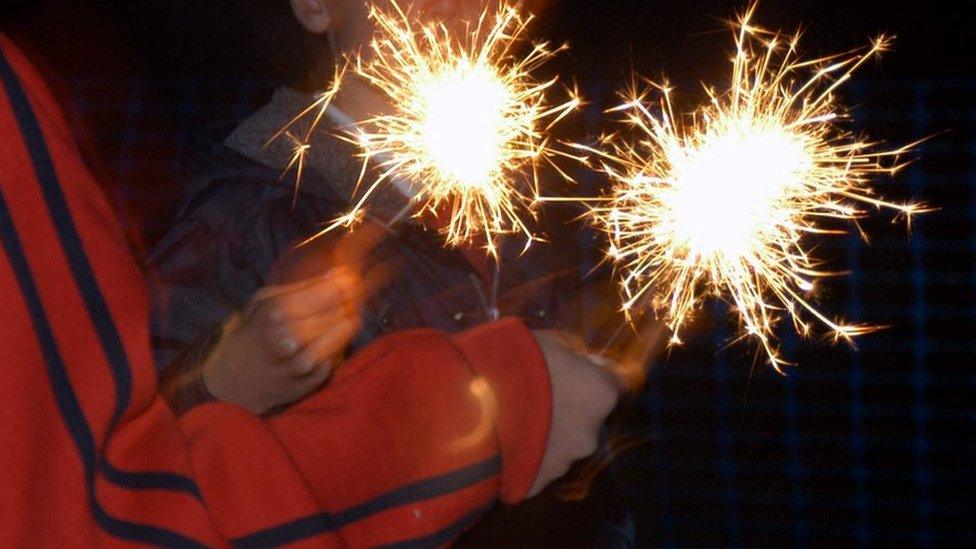
The sale or supply of fireworks to children is now illegal in Scotland
The riots and criminal damage that blighted Halloween and Guy Fawkes Night 2022 led to questions about how Scotland organises, legislates and even simply tolerates what are meant to be fun nights for everybody.
It is important to note that the number of overall reported incidents relating to fireworks offences actually dropped slightly last year to 483, compared with 581 in 2021.
And the Scottish Fire and Rescue Service says the number of deliberate fires set in the run up to Bonfire Night has dropped by nearly a third over the past five years.
But the violence and scale of the 2022 incidents, especially attacks against emergency service staff, was unexpected.
A major disturbance on Halloween saw youths rioting in Dundee's Kirkton area, where they blocked roads with bonfires and threw fireworks at emergency service staff and the public.
Just days later on Bonfire Night, riots in Edinburgh led to two police officers being treated in hospital for head injuries after bricks were thrown at their vehicle.
In another incident in the capital, 100 youths threw fireworks at members of the public and vehicles. Across Scotland, there were five attacks on firefighters as the service responded to more than 350 callouts that night
There have been spikes of bad behaviour and criminal incidents around Halloween and Bonfire Night for years but 2022 was seen as a major escalation of trouble.
Councils began talking about getting more powers to prevent or restrict the sale of fireworks and a new law which was already in place before 2022's events is meant to be making a difference.
But there has already been trouble this year, with police called out again to deal with a disturbance in Kirkton, where a group of youths blocked roads with bonfires and hurled fireworks.
So what can people rely on to prevent further outbreaks of violence and vandalism?
A change in the law
The Fireworks and Pyrotechnic Articles (Scotland) Bill, external became law in August 2022. It created a licensing scheme and limits the number of days when fireworks can be sold.
They can now only by bought and used by members of the public at certain times of the year, including Guy Fawkes Day, Hogmanay, Chinese New Year and Diwali.
It is also now an offence to give fireworks to, or buy them for, a child. Anyone found guilty of doing this will be subject to a fine of £5,000, a six-month prison term, or both.
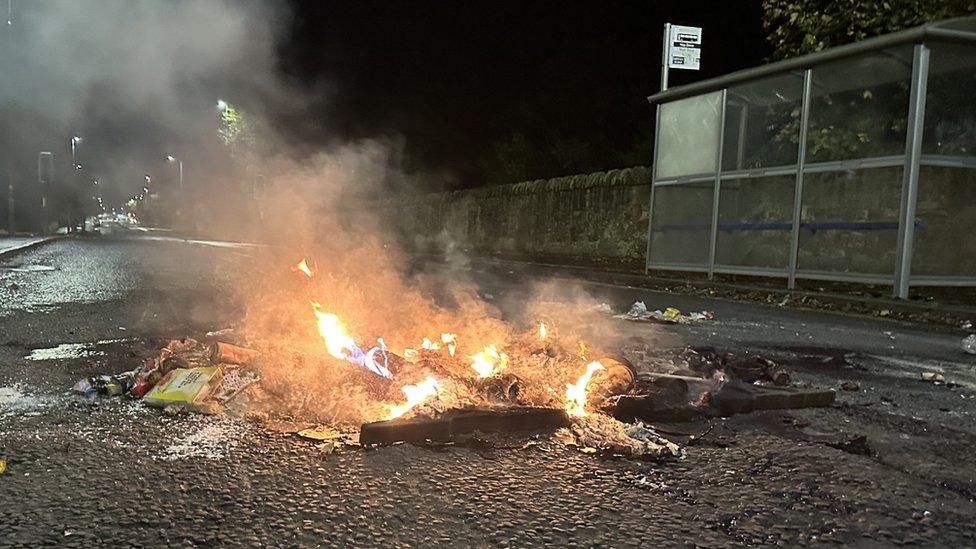
Fires were lit in a street in Niddrie area of Edinburgh on Bonfire Night 2022
At the time, the Scottish government said the bill would reduce stress and injury but opposition MSPs expressed concern about the legislation creating a "black market", with people selling fireworks to children illegally.
A Scottish government spokesperson said: "The legislation we passed last year introduced a range of new powers to control the use and distribution of fireworks, particularly to young people.
"It is also illegal for the public to use fireworks before 18:00 and after 23:00 - or midnight on 5 November.
"It is designed to support long-term cultural change in Scotland to help protect our communities and frontline services from the harm caused by fireworks misuse."
Policing the firework season
Police Scotland are at the front line of protecting the public and their emergency service colleagues against the mis-use of fireworks and 2023 is the sixth year of the force's Operation Moonbeam.
This sees the force deploying public order officers in support of community policing teams throughout the Halloween and Bonfire Night period.
They say this year's operation will be "enhanced" and they will make use of additional powers under the new fireworks legislation which allows officers the power to stop and search anyone they suspect may be in possession of fireworks.
Launching the operation last month, Assistant Chief Constable Tim Mairs said the "overwhelming majority of the public" want to enjoy themselves safely but a small minority use the festivities to cause fear and alarm.
"I want to make it abundantly clear that such reckless behaviour, including targeting my officers and other emergency service personnel will not be tolerated and we will use all the powers at our disposal to bring offenders to justice," he said.
"Last year saw an escalation in incidents in specific parts of the country and we are increasing the level of public order resource available to communities this year to deter and respond to any offences."
Attacks on emergency crews
The Fire Brigades Union (FBU) has expressed its concern for years now about attacks on crews and they believe these are connected to cutbacks in funding and services.
The Scottish Fire and Rescue Service (SFRS) has said it has to find £36m of savings over the next four years and the FBU argues this comes on the back of a decade of squeezed public spending.
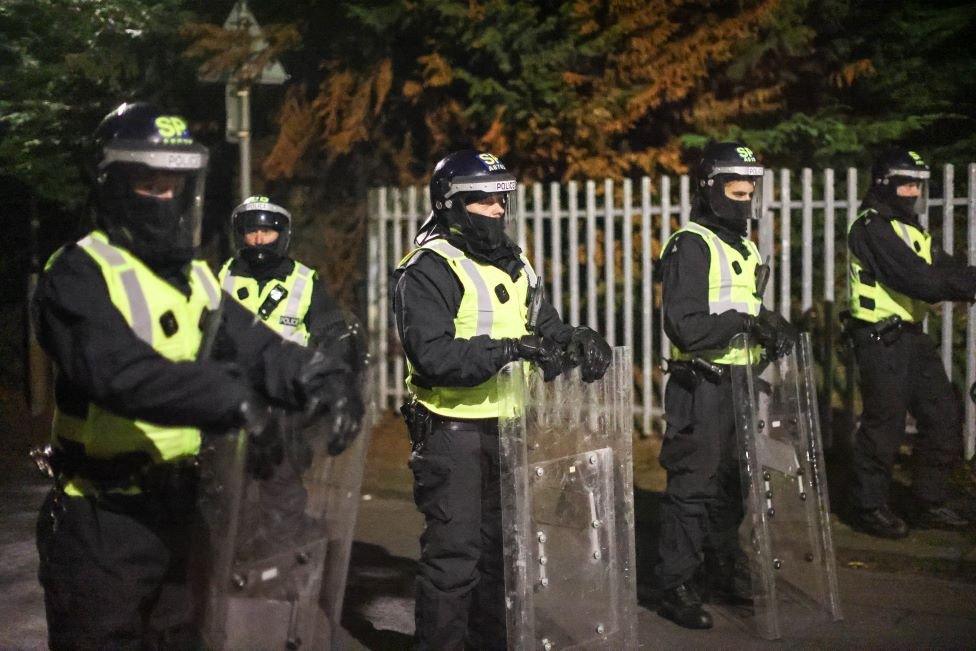
Public order specialist police were deployed in Dundee this week after trouble started in Kirkton
FBU regional secretary John McKenzie says the resulting cutbacks in education and community outreach programmes - where firefighters visit schools and community groups and meet young people - directly contributes to the attacks we have seen in recent years.
"We are very grateful for on the night policing and support, but what happens then has less of an impact then the investment you made 10 years ago in terms of education. We have not seen the progress on that we would have liked the last 10 years," he said.
"We made better progress 10 to 20 years ago but that has gone away with the funding cuts. The biggest single difference made to this is education," he added.
The Scottish government said it supported the police and courts in "dealing with offenders robustly".
A spokesperson added:"Every year ahead of Bonfire Night, Scotland's firefighters and community safety teams visit hundreds of primary and secondary schools to deliver safety presentations.
"As the fire service has stated, this year that has happened on the same scale as last year."
Cancelled public events
The fireworks season splits public opinion. For all those who love the traditions, the spectacle and the chance to come together and enjoy the pyrotechnics, there are many who find the anxiety of noise, the effect on pets and fear of anti-social behaviour too much to bear.
Traditionally, local events organised by councils or charity groups have been a staple of the fireworks season.
But this year has seen many of these events called off, the organisers citing funding pressure on budgets. This too is a worry for the FBU's John McKenzie.
"Well organised and run events being cut back is encouraging people to run their own events which are not so well policed," he said.
Update: In an earlier version of this article a picture showing firefighters extinguishing a bonfire in Portadown, County Armagh, was wrongly described as being in Cumbernauld, North Lanarkshire. That picture has been removed.
- Published30 October 2023
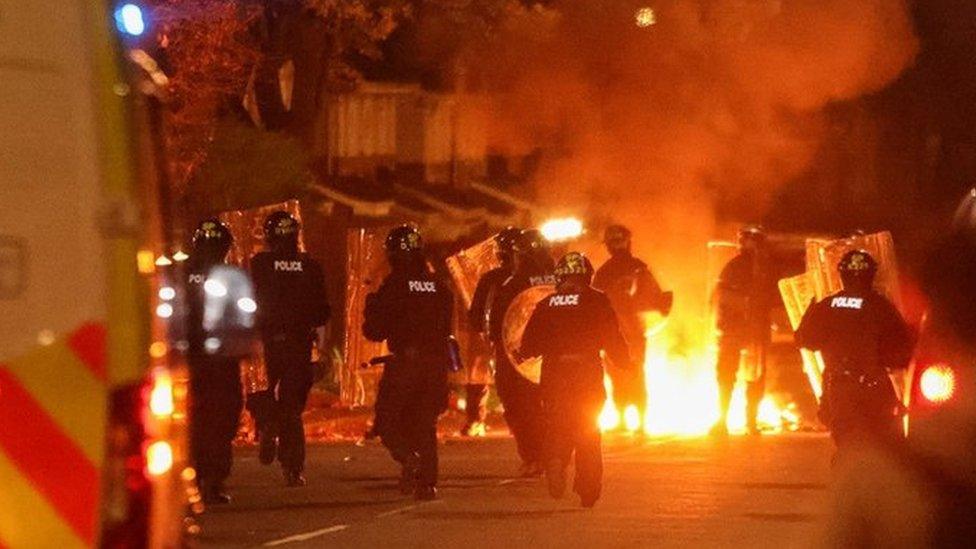
- Published1 November 2023
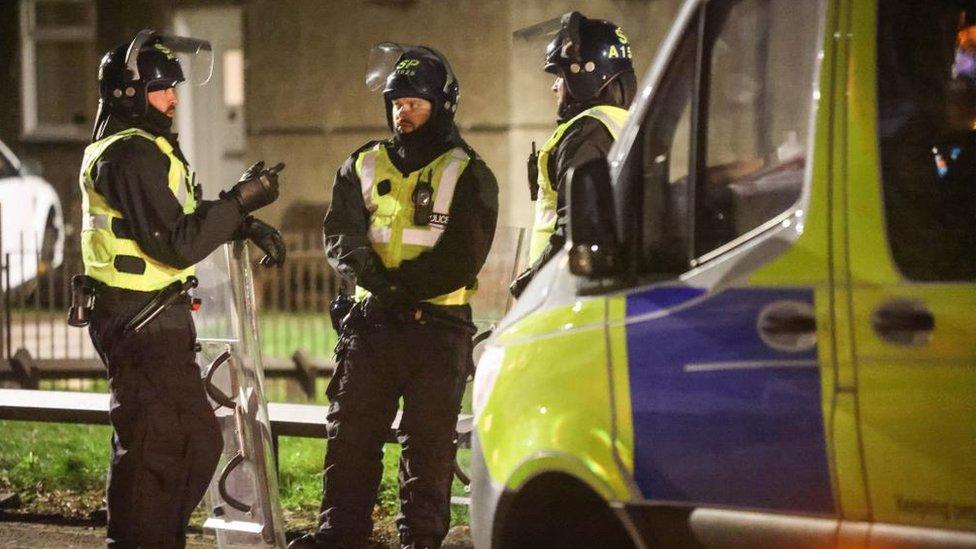
- Published31 October 2023
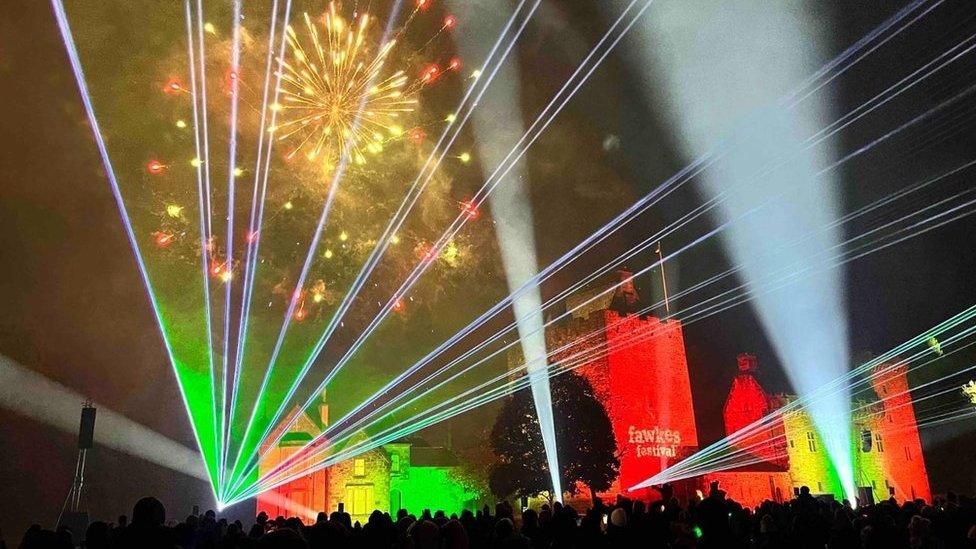
- Published12 January 2023
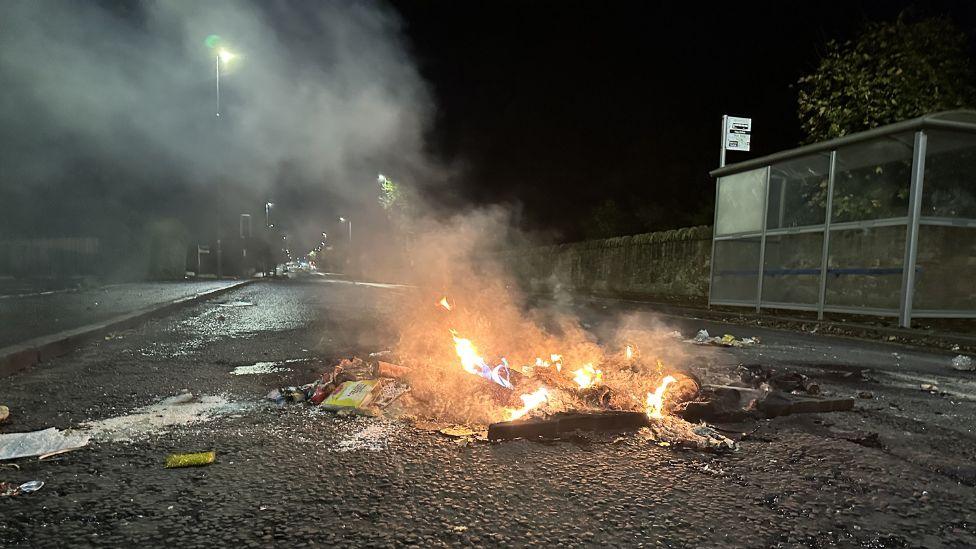
- Published1 November 2022
